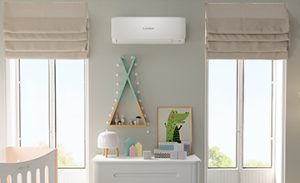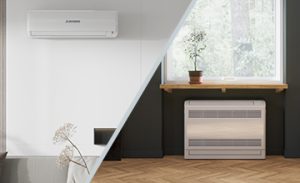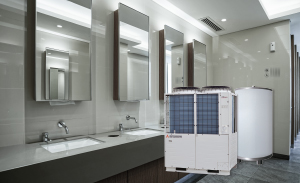9 Easy Tips to Reduce Your Heat Pump Running Costs This Winter

Winter is officially here and while it may not bring the white-walkers with it, you can guarantee it will bring some chilly temperatures. So while you may be looking forward to curling up on the couch and binge-watching Netflix in your Uggs, no-one wants a huge power bill come Spring so we’ve put together 9 helpful tips to help you keep warm while also keeping your power bill to a minimum this winter.
1. Let There Be Light
Not only is Vitamin D good for your body and soul it’s also helpful in keeping your house warm! Where possible keep your curtains, blinds or shutters open during the day to let the sunshine in. Your indoor plants will thank you and those few extra degrees of warmth you retain will mean less work for your heat pump when you get home.
2. Rug up
Uncovered flooring can account for up to 10% of heating loss within your home so if you’ve got timber floorboards or tiles cover these up with a nice rug to retain as much heat as possible. A nice shag rug will feel much better on your bare feet on those cold mornings too!
3. Cover Your Windows When You’re Home
While you want to let as much sunlight in during the day as possible, when the sun’s gone, best to cover your windows and glass doors up as these have a high level of thermal conductivity meaning they’ll allow all the heat out and your heat pump will have to work harder to maintain the temperature. If you have standard curtains, you may want to look into getting them lined for that extra layer of protection.
4. Minimise The Amount of Space You’re Trying to Heat
While it seems obvious, reducing the amount of space that your heat pump is trying to heat is one of the most effective way to heat your home more efficiency. The less space your heat pump is trying to heat, the less amount of time it’ll need to run and the less energy it’ll consume. Only heat the spaces that are being used and close any open doors and block off any entrance ways that may allow the heat to escape – especially important if you’re trying to heat the downstairs area of a two storey house.
5. Seek Out Those Draughts
Even with the doors closed, cold draughts will drastically reduce room temperature so to prevent these, cover up any gaps underneath your doors with a door snake and check the seals around your window sills. While they may only be only small, all these small draughts will add up and mean more work for your heat pump.
6. Make Use of Timers
Most split systems and ducted systems will have several timer functions allowing you to control when your unit turns on and off. Set this up to turn on only when required and be sure to activate the sleep timer when going to bed – this will stop your unit running all night long.
7. Keep a Constant and Reasonable Temperature
Setting your system to an excessively high temperature will mean your unit will have to work harder and longer to reach the set temperature and in turn, use more energy. When using heating mode, we recommend setting the temperature between 22 oC and 24oC and avoid changing this during operation. This should ensure everyone’s comfortable and that you’re unit isn’t working too hard.
8. Check The Filters
If the filter in your split system or ducted system is dirty, your unit will be working overtime to take in sufficient air and in turn, using more energy than it should. Ensuring your filters are clean is paramount in ensuring your split system is running as efficiency as possible so give them a clean before this cold season. Refer to your user manual for filter locations and our handy blog for instructions on how to clean them.
9. Have Your Unit Serviced Regularly
Cleaning the filter of your split system or ducted unit regularly is great, however it’s also important to have your unit serviced regularly to ensure it’s running as efficiently as possible. A technician will be able to check the internal components as well as gas levels and a range of other things to ensure your unit is running at optimal efficiency going into winter.
If you’re looking for an efficient heating solution for your home, check our range of energy efficient reverse cycle split systems or our ducted systems. Otherwise, get in touch with your local MHI installer by using our installer search – they’ll be more than happy recommend the perfect system for your home.


















